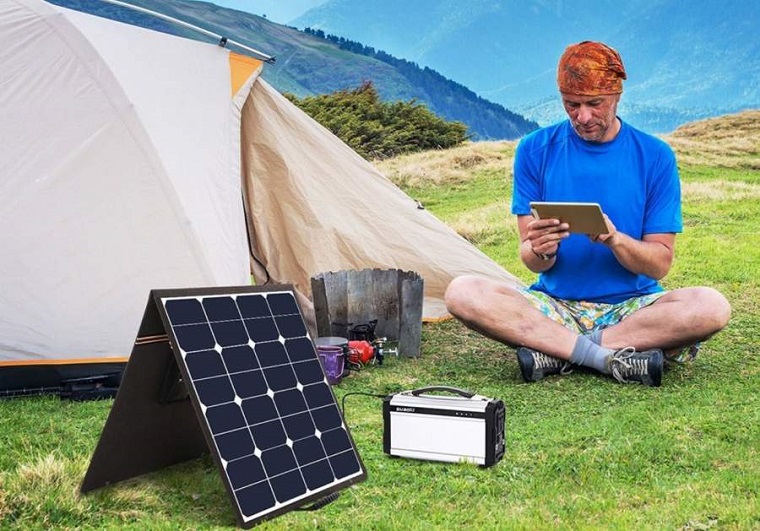Prepping for Lights Out

Some of you will be aware of another Labor promise being broken this week, the one that said they wouldn’t do deals with the Greens. Yet, in order to pass their legislation, they were prepared to sell you out to the Greens, and assure the complete future destruction of not only our coal and gas industries, but our base load electricity in the process.
But we knew this was coming, and we still have time to prepare ourselves. So, I’d like to share a few thoughts and suggestions from my personal experience.
Firstly, we can live without electricity. Our forefathers did so for thousands of years. And life was better, albeit less comfortable. Instead of gathering around the television as we did in the 70s or all being off in our individual areas glued to our mobile phones and laptops as we do today, families spent time together. They talked, socialised with neighbours, had cards nights, sang around the piano, went dancing, and worked together doing tasks such as preserving the foods they had harvested that day. And personally, I’d love to see that happen again.
But many can’t comprehend a life without power, because we have become very comfortable and very lazy, and very accustomed to being both. But perhaps you can meet me halfway.
Going off grid
In 2017, I purchased a 14-acre bush block. Although the power pole was only 10 metres away on the next property, greedy, thieving Powercore wanted $30,000 to connect me. $50,000 if I wanted it underground. And because Rural Conservation Zone zoning requires a ‘reciprocal power supply’ before anyone can build, they are assured eventually some sucker will pay it.
However, I wasn’t to be that sucker, and decided given BAL requirements, soil testing requirements, septic testing/installation and Dan Andrews changing the boundaries of the Bushfire Management Overlay to now cover my entire property, that it simply wasn’t worth building there. Instead, I decided to use it as my getaway, playground and veggie garden, and inadvertently learned, I could power a whole house using just a few solar panels and old car batteries if necessary.
I built a 3 metre by 3 metre freestanding cabin, that being under 10 square metres required no building permit. In there was my sofa, tv, food shelving, 2 burner gas stove, sink, fridge, aircon and table. Next to the cabin was my caravan, which was set as one big room and served as bedroom and lounge and contained the WiFi, heater, large tv and another air conditioner. Forming a courtyard layout with this and the cabin, was a second caravan that had my toilet and shower, washing machine, another stove top, oven and storage.
I successfully ran everything there for 4 years from just a couple of 200-watt solar panels, a couple of tiny trickle charge panels, 2 x 240-watt inverters and a back-up generator.
How to do it
So, how does one go about it? How could someone go completely ‘off the grid’ if that’s what they wanted, or were forced to do?
Well, you could pay a massive amount of money to a solar company. Or…you could do your own system, buying off eBay, for a mere fraction of the cost.
Firstly: Learn. Learn about amps and watts. Learn how many amps every electrical appliance requires, including the ‘surge (or start-up) power’ when an electric motor switches on. Learn how deep cycle batteries work, and how they are rated. Learn how many amps you will need to generate, and how many panels and batteries needed to supply that. I spent many enjoyable nights studying on the internet where all of this information was free. And I really enjoyed learning it. It actually became a hobby.
Second: Change. Change the way you use power, and change your habits. For years we have taken electricity for granted, just flicking switches without a clue or a concern of how much power we are actually using. We run big fridges and freezers all for convenience really. Yet if the supermarket isn’t that far away, you can leave it in their fridge and freezer until you need it. Then that little bar fridge that only pulls 4 amps an hour to run is more than adequate. Start buying foods that don’t require refrigeration such as canned foods, dried foods, dehydrated, powdered and longlife.
Third, you’ll probably need to change to gas or wood for cooking, heating, and hot water as these are your biggest electrical draw, and I’m talking bottled gas, as mains will be phased out. I used a small ‘demand’ system for hot water, run by a 12-volt water pump. It cost about $140 on eBay and was designed more for camping, but was more than adequate.
Fourth, and most important, get used to not being quite as comfortable, and having to put a little more effort into things. For example, when the sun hasn’t been shining and the batteries are low, you may have to start the generator and hook up the battery chargers. I also required the generator to run appliances of larger wattage such as a fan heater, air-conditioner or microwave, but could have resolved that by simply adding more panels.
Fifth, get creative. You will be amazed what hacks you come up with.
Of course, if you have enough panels, batteries, and 240 volt inverters, there’s really no limit to what you can run. The idea that solar needs to be hooked up to the grid is just a lie generated by the greedy electricity companies to harness your excess power to sell to somebody else, and keep you dependent upon them.
It’s legal
Lastly, the protest I receive most from all the naysayers, is about the legality of it, and requiring certified solar installers and electricians. And this is true if you want to wire solar into your mains power. But when you see campers with a solar panel outside their tent watching tv at night, did they call an electrician? No. And if you want to put a panel outside your house, connect it to a battery and run a 12 volt strip light from it each night, you don’t need an electrician either. As long as everything runs from its own individual circuits, you can run as many panels, batteries and lights as you want.
For those of you who just can’t live without your creature comforts (and given the size some people say their electricity bills are, there are a few of you), I understand that. But keep in mind, you may have that choice taken away from you shortly anyway as they begin to ration power, and even find that those who have become self-efficient energy wise have far more power available than you do. For others like me, who are far more at home camping out in the bush anyway, 12-volt solar set ups may just be the perfect set up for you. And trust me on this, you do become accustomed to it. All change is a little uncomfortable at first.
Subscribe to XYZ on Telegram, Bitchute, Twitter and Gab.
Source: https://xyz.net.au/2023/03/prepping-for-lights-out/








